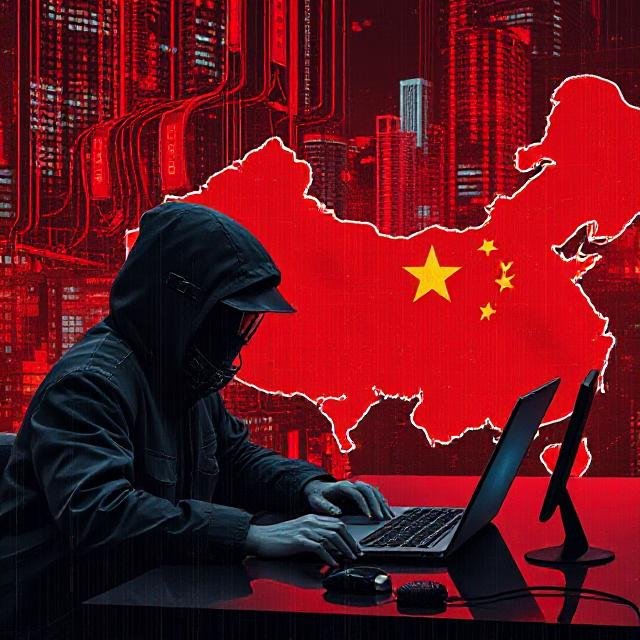Digital Dragnet: Beijing Issues Cyber Warrants While Targeting Taiwan Independence Advocates
Chinese authorities have launched a coordinated legal offensive against Taiwanese individuals and organizations, issuing criminal warrants for alleged cybercrime activities while simultaneously imposing commercial sanctions on independence-supporting business entities.

Chinese authorities have launched a coordinated legal offensive against Taiwanese individuals and organizations, issuing criminal warrants for alleged cybercrime activities while simultaneously imposing commercial sanctions on independence-supporting business entities. The actions represent Beijing's latest effort to pressure Taiwan through both legal and economic channels.
Cybercrime Allegations and Warrants
On Thursday, Chinese law enforcement issued arrest warrants for 20 Taiwanese nationals accused of conducting cyber operations targeting mainland China. According to police in Guangzhou, a major manufacturing center in southern China, these individuals allegedly carried out hacking missions under the direction of Taiwan's governing Democratic Progressive Party (DPP).
Leadership and Organization
Authorities identified Ning Enwei as the purported leader of the alleged cyber operation, claiming he coordinated activities on behalf of Taiwan's independence-leaning political party. However, Chinese officials did not provide specific details about the nature of the alleged cybercrimes or present evidence supporting the accusations.
The DPP has historically advocated for Taiwan's de facto independence and has resisted Beijing's reunification efforts, making it a frequent target of Chinese political criticism and legal action.
Commercial Sanctions and Business Restrictions
Parallel to the cybercrime warrants, Beijing announced comprehensive commercial restrictions against Sicuens International Company Ltd., a Taiwanese business enterprise. Chinese authorities have prohibited all commercial dealings with the company, citing the political activities of its leadership.
Target Company Profile
Sicuens International Company Ltd. operates in the bicycle parts industry, specializing in sourcing components from Chinese manufacturers according to various business websites. The company represents the type of cross-strait commercial relationship that has historically formed the backbone of Taiwan-China economic ties.
Sanctioned Individuals
The commercial ban specifically targets businessman Puma Shen and his father, both identified by Chinese authorities as "hardcore Taiwan independence supporters." Beijing's designation reflects its policy of economically isolating individuals and entities associated with Taiwan independence advocacy.
Kuma Academy and Defense Preparedness
Puma Shen serves as the leader of the Kuma Academy, an organization that has drawn particular attention from Chinese authorities due to its mission of preparing Taiwanese civilians for potential military conflict.
Academy Mission and Activities
According to the organization's official website, the Kuma Academy "aims to prepare a prewar mentality for civilians" with a mission to "cultivate self-defense capability and will to defend Taiwan." The academy provides training in:
- Self-sustenance skills for crisis situations
- Recognition of enemy disinformation campaigns
- Civilian defense capabilities for both peacetime and wartime scenarios
The academy's activities reflect growing concerns among some Taiwanese citizens about potential Chinese military action against the island.
Political Context and Territorial Claims
These legal and commercial actions occur within the broader context of China's territorial claims over Taiwan. Beijing maintains that Taiwan constitutes an integral part of Chinese territory and has repeatedly stated its willingness to use military force to achieve reunification if deemed necessary.
Official Government Position
Zhu Fenglian, spokesperson for China's Taiwan Affairs Office, articulated the government's economic policy toward Taiwan independence supporters. She stated that Sicuens "engages in trade and business cooperation with certain mainland enterprises in pursuit of economic benefits."
Zhu emphasized Beijing's firm stance: "The mainland side will never allow enterprises related to die-hard 'Taiwan independence' supporters to seek profits in the mainland."
Previous Sanctions and Escalating Tensions
The current actions build upon previous punitive measures implemented by Chinese authorities. In the preceding year, Beijing announced sanctions against both Puma Shen and the Kuma Academy, accusing Shen of "actively and systematically organizing activities promoting Taiwan independence."
This pattern of escalating sanctions demonstrates China's systematic approach to pressuring individuals and organizations associated with Taiwan independence advocacy.
Taiwan's Response and Defense Preparations
Taiwan has responded to increasing Chinese pressure through various defensive measures:
Military Enhancement
The Taiwanese government has significantly increased military spending and capabilities, modernizing its armed forces to deter potential Chinese aggression.
Civilian Defense Initiatives
Beyond official military preparations, private organizations and individuals have established guerrilla warfare training camps, reflecting grassroots efforts to prepare for potential conflict scenarios.
These civilian defense initiatives, including organizations like the Kuma Academy, represent a broader societal shift toward defense preparedness among segments of Taiwan's population.
Broader Implications
The simultaneous issuance of cyber warrants and commercial sanctions illustrates China's multi-faceted approach to pressuring Taiwan, combining legal, economic, and political tools to advance its reunification objectives. The targeting of both alleged cybercriminals and legitimate business operators demonstrates Beijing's willingness to blur the lines between security concerns and political opposition.
The actions also highlight the increasingly complex challenges facing Taiwanese businesses and individuals who maintain economic relationships with mainland China while supporting Taiwan's continued autonomy. As cross-strait tensions continue to escalate, the space for apolitical commercial engagement appears to be narrowing significantly.














